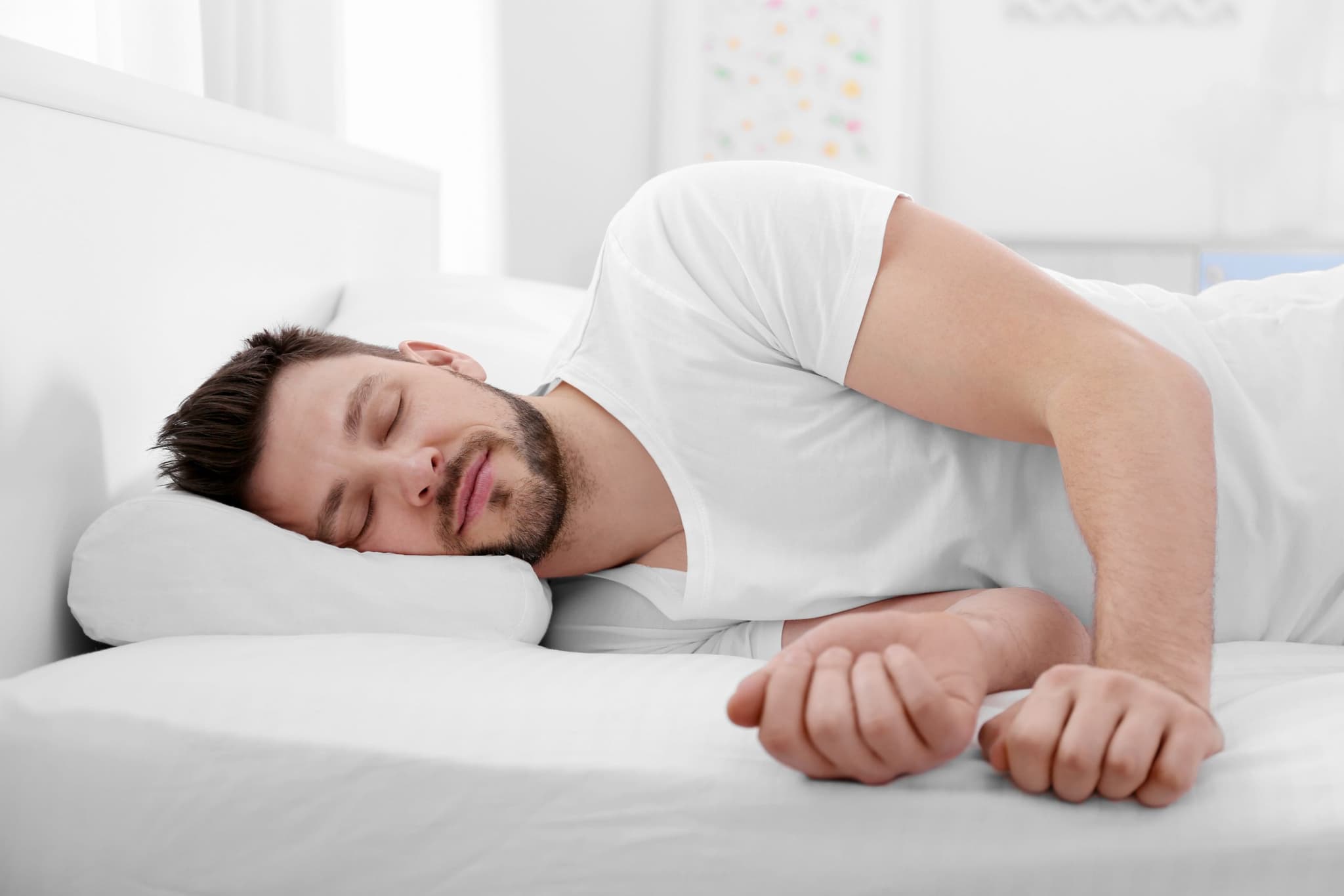
2023-05-03T09:45:20
Sleep apnea linked to degenerative brain diseases
- Sleep Medicine
July 14, 2017 | Ear, Nose, Throat • Sleep Medicine
Specialties:ENT (Ear, Nose and Throat)

No one likes to think that they snore while sleeping, but in reality, about 45 percent of all normal adults snore on occasion. Snoring can be a nuisance and commonly creates issues with sleep for a spouse who cannot get a good night’s sleep.
In addition, about 75 percent of snorers also have obstructive sleep apnea, a condition where breathing is disrupted that can increase the risk of heart disease.
Many medications that claim to keep you from snoring aren’t backed by scientific evidence, and you should always check with your doctor before taking any of these medications. Here are other things you can do to prevent snoring.
When you are lying flat on your back, the base of your tongue and soft palate naturally collapse to the back wall of your throat. This can cause a vibrating sound during sleep—snoring. Sleeping on your side, however, stops this collapse of the tongue and soft palate.
For some people, a full-body pillow helps them sleep on their side. Others use reclining techniques to elevate the head—this opens nasal passages and can prevent snoring, though it can also cause neck pain in some cases. Some even tape tennis balls to the back of their pajamas to stop them rolling on their back. If none of these techniques work, this could be a sign of obstructive sleep apnea, and you should speak with your doctor.
Weight loss can help some people, though it won’t work for everyone—it’s generally most useful for people who did not previously snore, but began to snore after they gained weight. Weight gain around the neck can squeeze the internal diameter of the throat, which makes it more likely to collapse during sleep and cause snoring.
Alcohol and sedatives reduce the resting tone of the muscles in the back of the throat, making you more likely to snore. People who drink alcohol within a few hours of going to sleep can make snoring worse, and people who don’t normally snore may snore after drinking.
Poor sleep habits are also sometimes called poor sleep “hygiene,” and they can be different for everyone. For some people, an example of poor sleep hygiene might be working long hours without sleep. This makes you overtired when you finally hit the pillow, and during deeper sleep, snoring is more likely due to floppier muscles in the throat.
Some snoring can start in the nose, and for these cases, keeping the nasal passages open can go a long way. This allows air to move in more slowly and without constriction—fast-moving air is more likely to produce snoring.
Showering before bed can help open nasal passages, particularly if you keep a bottle of saltwater rinse in the shower and rinse your nose with it while you’re showering. Some others find success with a neti pot to rinse out the nasal passages, and others use nasal strips.
In some cases, allergens in the bedroom and in the pillow can contribute to snoring. Dust mites can accumulate on pillows, and any pets on the bed can increase the presence of animal dander, another irritant. If you notice no allergy symptoms during the day but then they begin to set in at night, this could be something to look out for. Replace pillows once every six months, and put pillows through an air fluff cycle every couple weeks.
When you’re dehydrated, any secretions in your nose and soft palate become stickier—this means they’ll stick in the throat more easily, and lead to snoring. Healthy women should have about 11 cups of water a day, and healthy men should have about 16 cups.
In addition, there are several products that might help reduce or eliminate snoring:
There are other techniques and products that are being pursued to help with snoring, including snoring apps, digital sleep devices and mattress technologies.
If you or your partner is dealing with significant snoring concerns, your doctor can offer a plan to treat the underlying cause.
“7 Easy Fixes for Snoring.” WebMD. http://www.webmd.com/sleep-disorders/features/easy-snoring-remedies#1
“Stop Snoring Devices.” American Sleep Association. https://www.sleepassociation.org/stop-snoring-curesremediesdevicesaidsmouthpiecespillows/
WRITTEN BY:
The Live Better Team

2023-05-03T09:45:20

2023-04-06T14:20:05

2019-07-31T10:27:27

2019-05-14T09:35:08
This information is not intended to replace the advice of a medical professional. You should always consult your doctor before making decisions about your health.